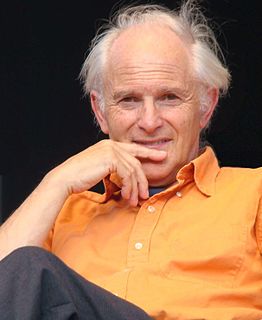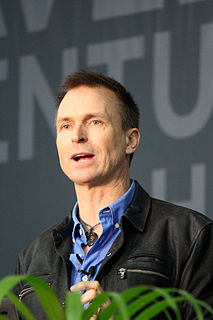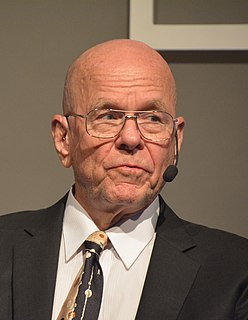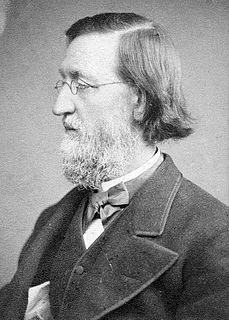A Quote by Daniel Levitin
The amount of scientific information we've discovered in the last twenty years is more than all the discoveries up to that point, from the beginning of language.
Quote Topics
Related Quotes
I often reflect on what an extraordinary time (pun intended) it is to be alive here in the beginning of the twenty-first century. It took life billions of years to get to this point. It took humans thousands of years to piece together a meaningful understanding of our cosmos, our planet and ourselves. Think how fortunate we are to know this much. But think also of all that's yet to be discovered. Here's hoping the deep answers to the deep questions-from the nature of consciousness to the origin of life-will be found in not too much more time.
Although humans have existed on this planet for perhaps 2 million years, the rapid climb to modern civilization within the last 200 years was possible due to the fact that the growth of scientific knowledge is exponential; that is, its rate of expansion is proportional to how much is already known. The more we know, the faster we can know more. For example, we have amassed more knowledge since World War II than all the knowledge amassed in our 2-million-year evolution on this planet. In fact, the amount of knowledge that our scientists gain doubles approximately every 10 to 20 years.
There are innumerable writing problems in an extended work. One book took a little more than six years. You, the writer, change in six years. The life around you changes. Your family changes. They grow up. They move away. The world is changing. You're also learning more about the subject. By the time you're writing the last chapters of the book, you know much more than you did when you started at the beginning.
The only truly new ideas [the right] has come up with in the last twenty years are (1) supply side economics, which is a way of redistributing the wealth upward toward those who already have more than they know what to do with, and (2) creationism, which is a parallel idea for redistributing ignorance out from its fundamentalist strongholds to those who know more than they need to.
We have a word game in English called "Twenty questions." To play Twenty Questions, one player imagines some object, and the other players must guess what it is by asking questions that can be answered with a "yes" or a "no." I imagine every language has a similar game, and, for those of us who speak the language of science, the game is called The Scientific Method.
The point of mythology or myth is to point to the horizon and to point back to ourselves: This is who we are; this is where we came from; and this is where we're going. And a lot of Western society over the last hundred years - the last 50 years really - has lost that. We have become rather aimless and wandering.
My idea in Half the Kingdom was simply, or not so simply perhaps, that medical science has given us twenty extra years of life. Those twenty extra years - one is grateful for them, one is happy, but they also give you ten or twenty years more of losing your faculties. That is actually the origin of my notion. Once you live longer than you're supposed to live, things go dreadfully wrong. But nevertheless, you're not dead.





































